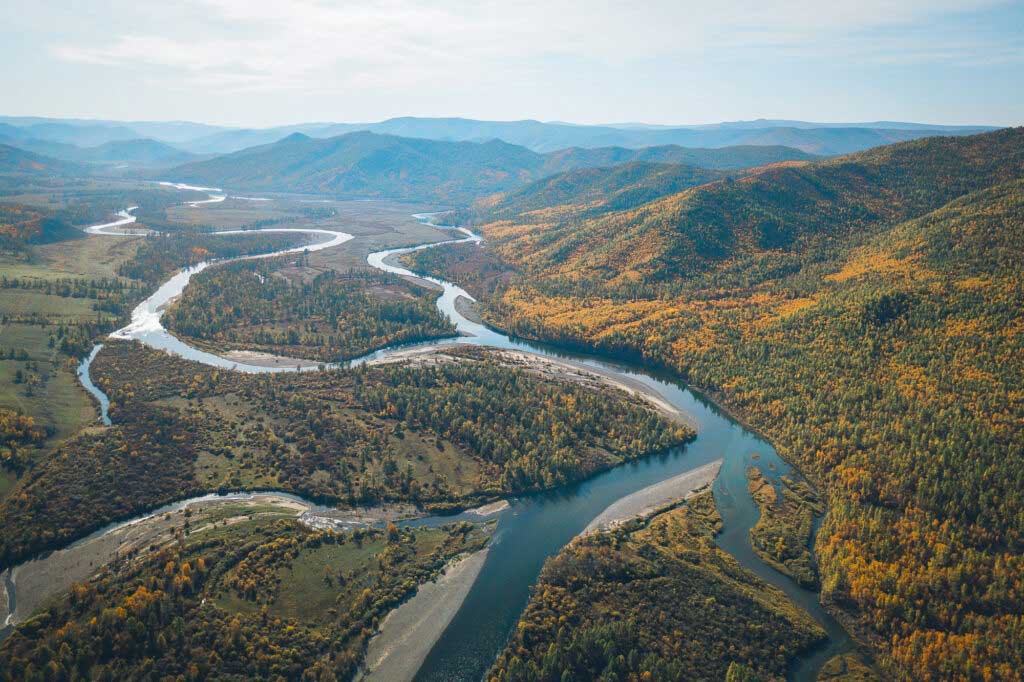
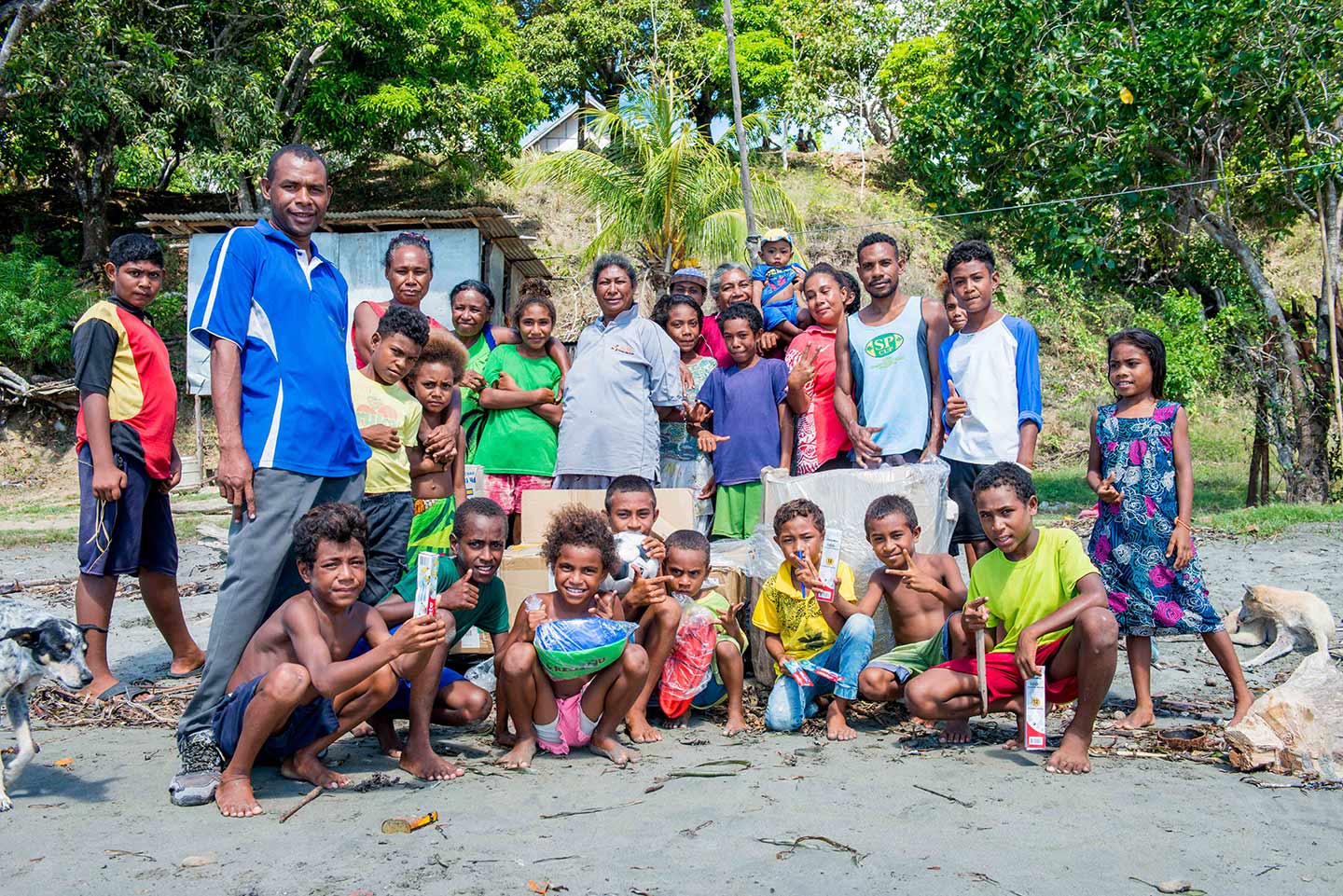
When the foreign adventure seekers stopped arriving in Papua New Guinea amid COVID-19 restrictions and border closures, Sportfishing PNG ltd.’s 21 employees shifted into survival mode. Eight communities that depend on the angling company’s success along ruggedly remote rivers in the country’s Western Province, and the stunningly untouched Long Reef in Milne Bay, waited out a pause in deliveries of school supplies and sporting equipment, medicine, food, and tools.
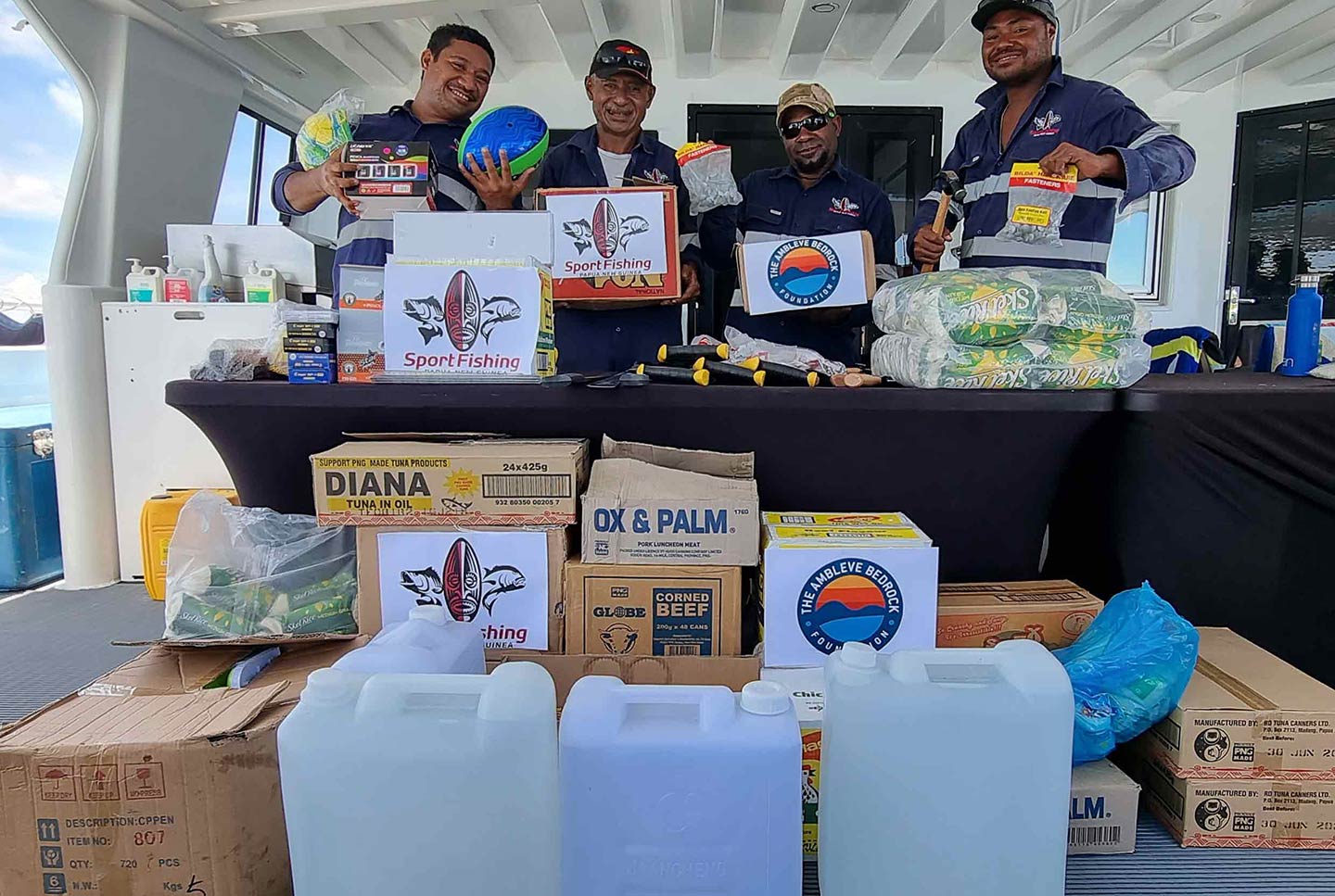
“We had to shut down 95% of tours, especially with the international clients, because of the regulations during this pandemic,” says Jason Neil Yip, the outfit’s owner/operator and a PNG national. “We rely now on local charters like beach transfers and small group fishing charters, which are only active during weekends to at least still provide jobs for our local employees.” The Ambleve Bedrock Foundation recently responded to the need with $35,000 USD in grant funds for SportFishing PNG under its mission to support ecotourism around the world and build capacity for environmental sustainability that strengthens local economies. The Foundation sent $10,000 for community donations—food, school supplies, medicine, and building materials—and $25,000 toward salaries for employees, who include PNG citizens and expatriates from the Philippines and South Africa.
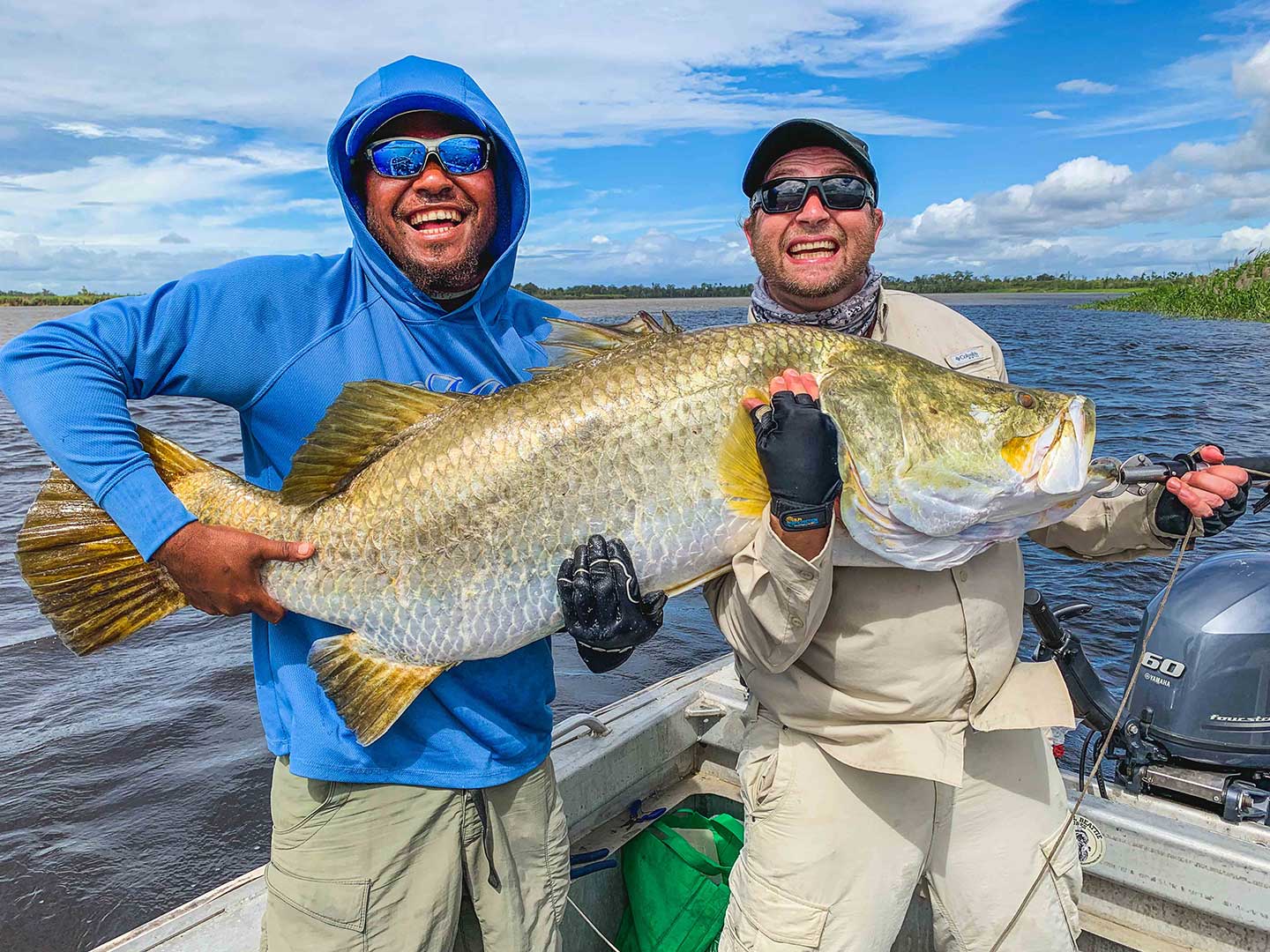
SportFishing PNG expeditions to the Aramia River region, accessed by clients via chartered plane, feature colossal Papuan black bass, barramundi, Saratoga, Niugini tiger fish and sawfish, along with introductions to the native Gogodala people. Reef excursions land anglers amid the natural beauty of Wari Island’s white sand beaches in an archipelago paradise for silvery giant trevallies, dogtooth tuna and dramatically-hued Napoleon wrasses.
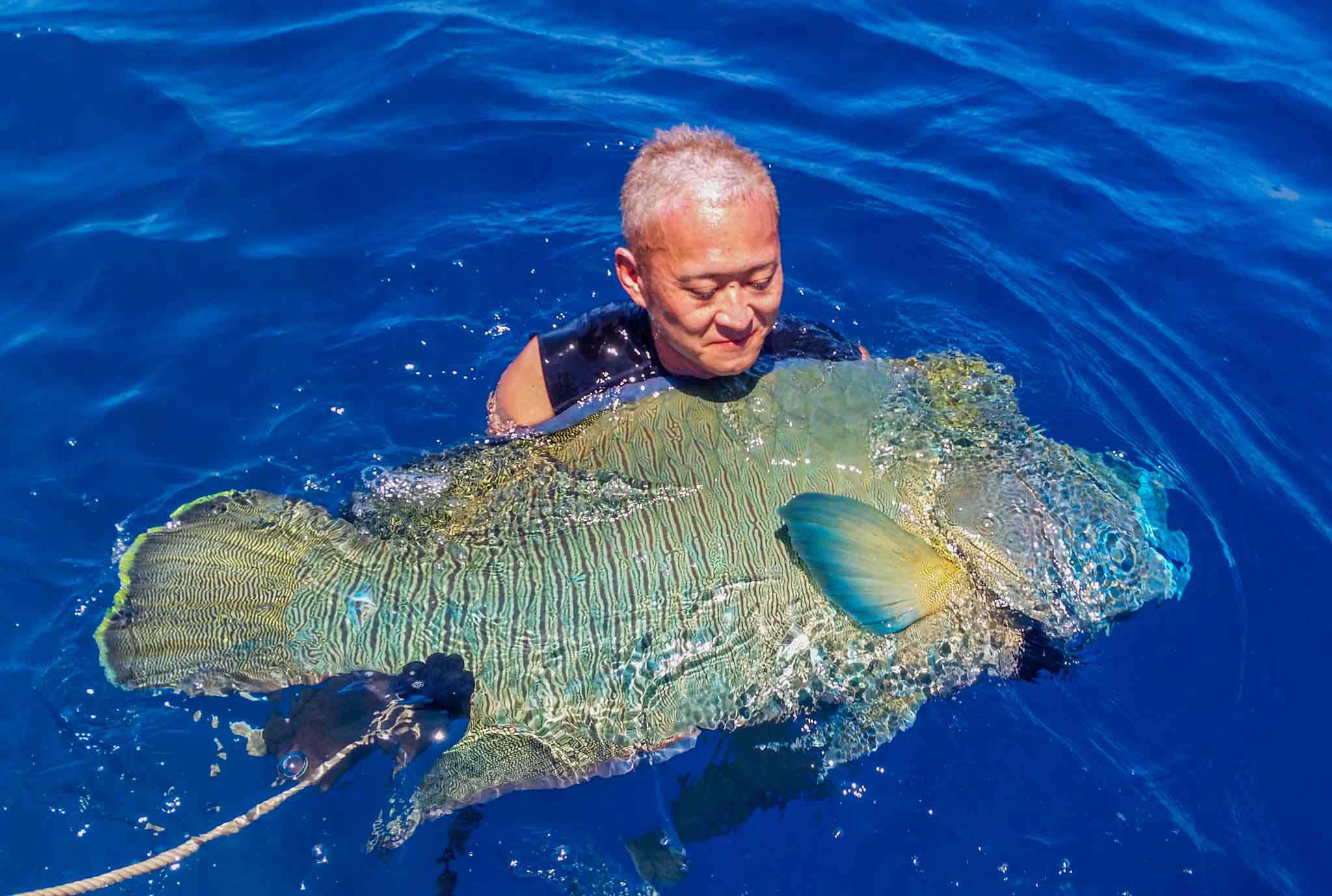
With increasing isolation, the outlet’s current customer base is limited to locals and a few expats who remain as residents during the pandemic. COVID-19 vaccination rates among adults in the country remain very low, which officials point to as a contributing factor in widespread outbreaks and tightened travel restrictions (Lyons, 2021). The pandemic has severely hampered the ability of the tourism-based company, headquartered in capital city Port Moresby, to continue as a viable economic force. About 80% of the country’s dominant and growing rural population relies on land and marine resources for food income, and many families benefit directly or indirectly from tourism, agriculture and related biodiversity (PNG Dept. of National Planning & Monitoring, 2021).
![]()
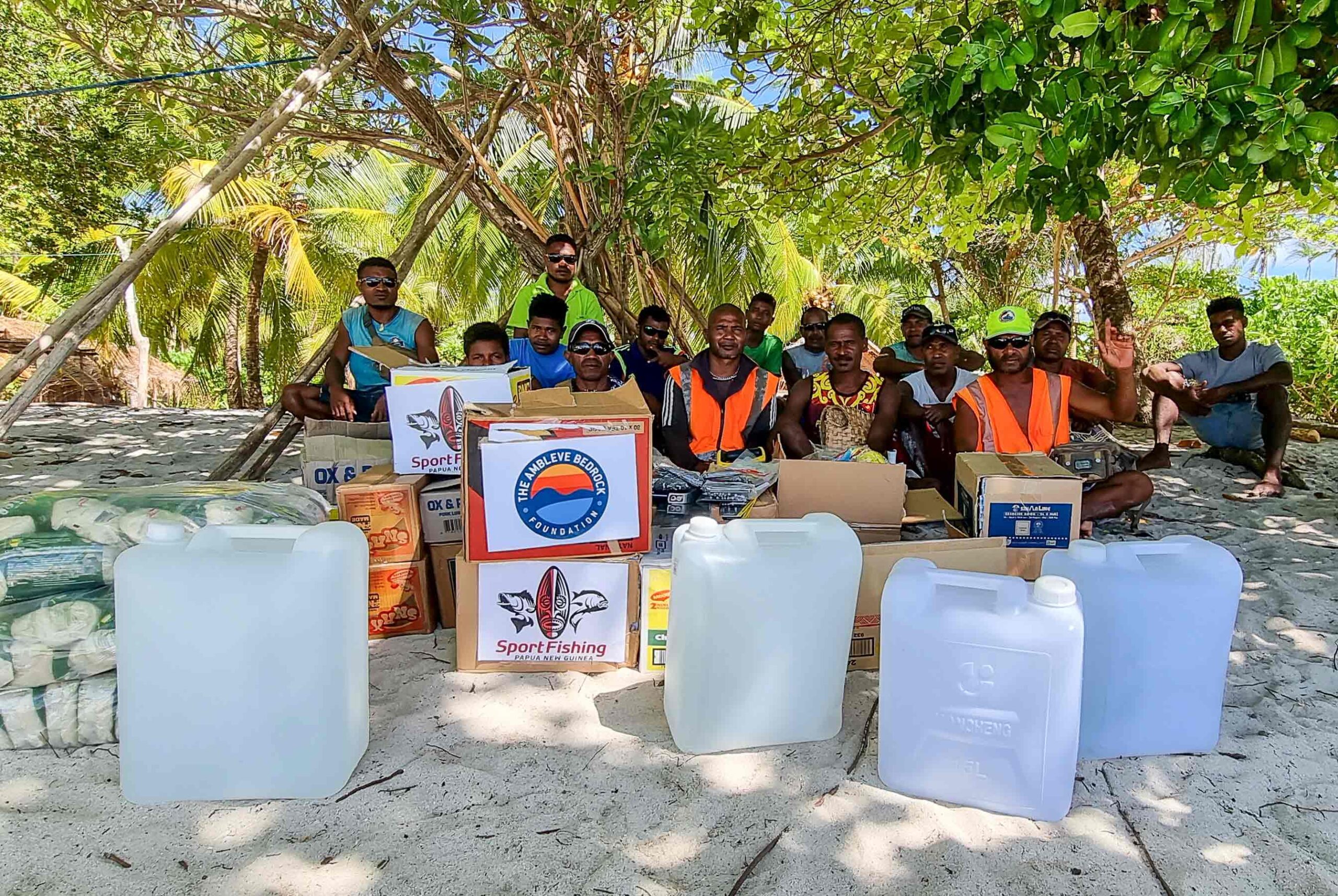
Foreign thrill seekers still may be able to experience the rush of reeling in a lure-obliterating, formidable catch later this year through an exemption letter that may be secured by the outfit for those who are fully vaccinated for COVID-19 and pass a PCR test. Revitalizing eco-tourism and maintaining and increasing formal employment for residents are vital as PNG strains to reach economic goals for higher disposable household incomes and prioritizes conservation for tourism and protection of the nation’s diverse flora and fauna (Government of Papua New Guinea, 2009).
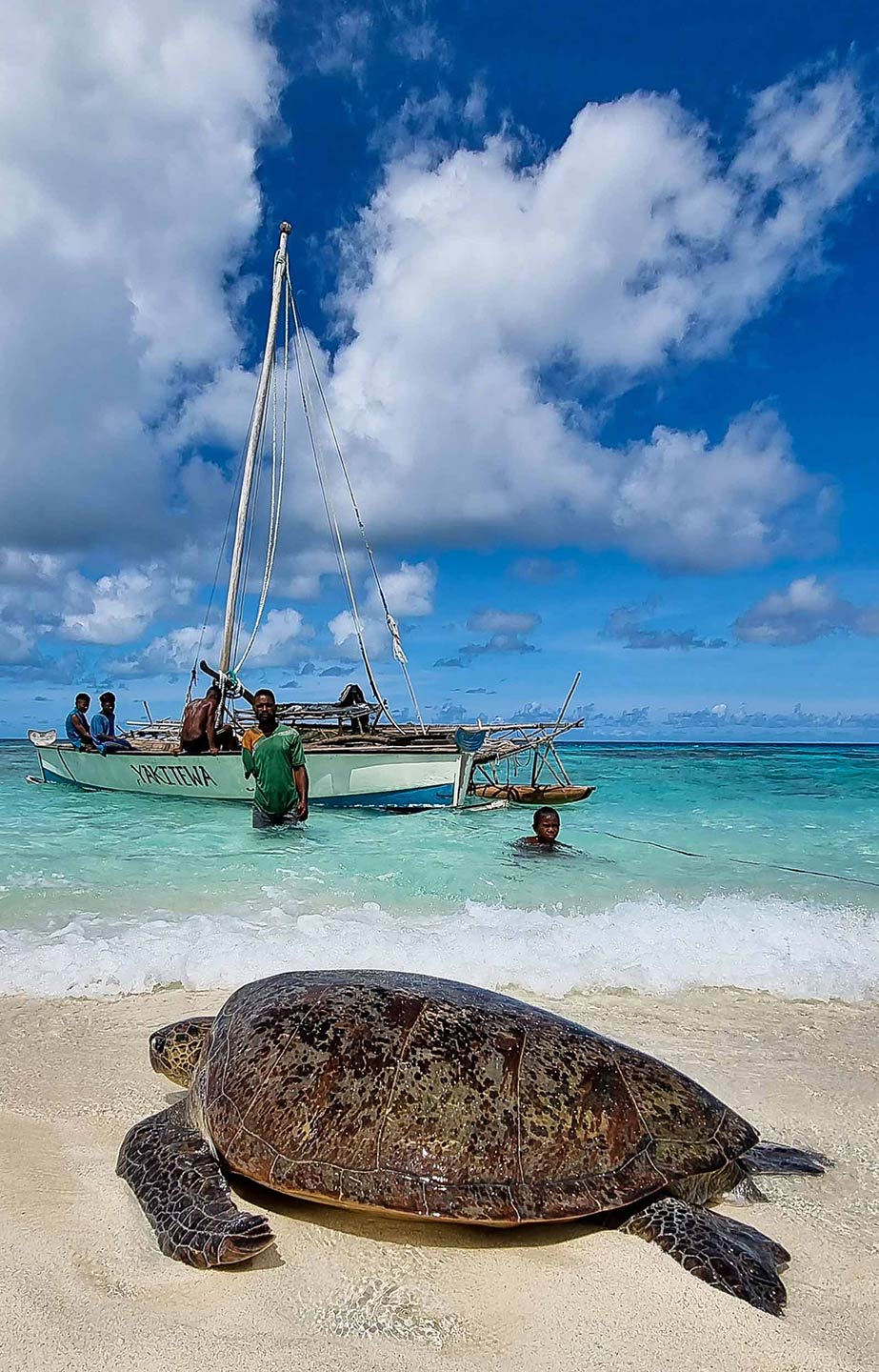
PNG has much to offer. Experiencing the tropical region up close from SportFishing PNG’s fleet of watercraft, including its “mothership” vessel, the K20, showcases an intact ecosystem that is home to almost 7% of the world’s biodiversity. While the island nation makes up just 1% of the world’s landmass, PNG hosts the third largest rainforest (PNG Dept. of National Planning & Monitoring, 2021).
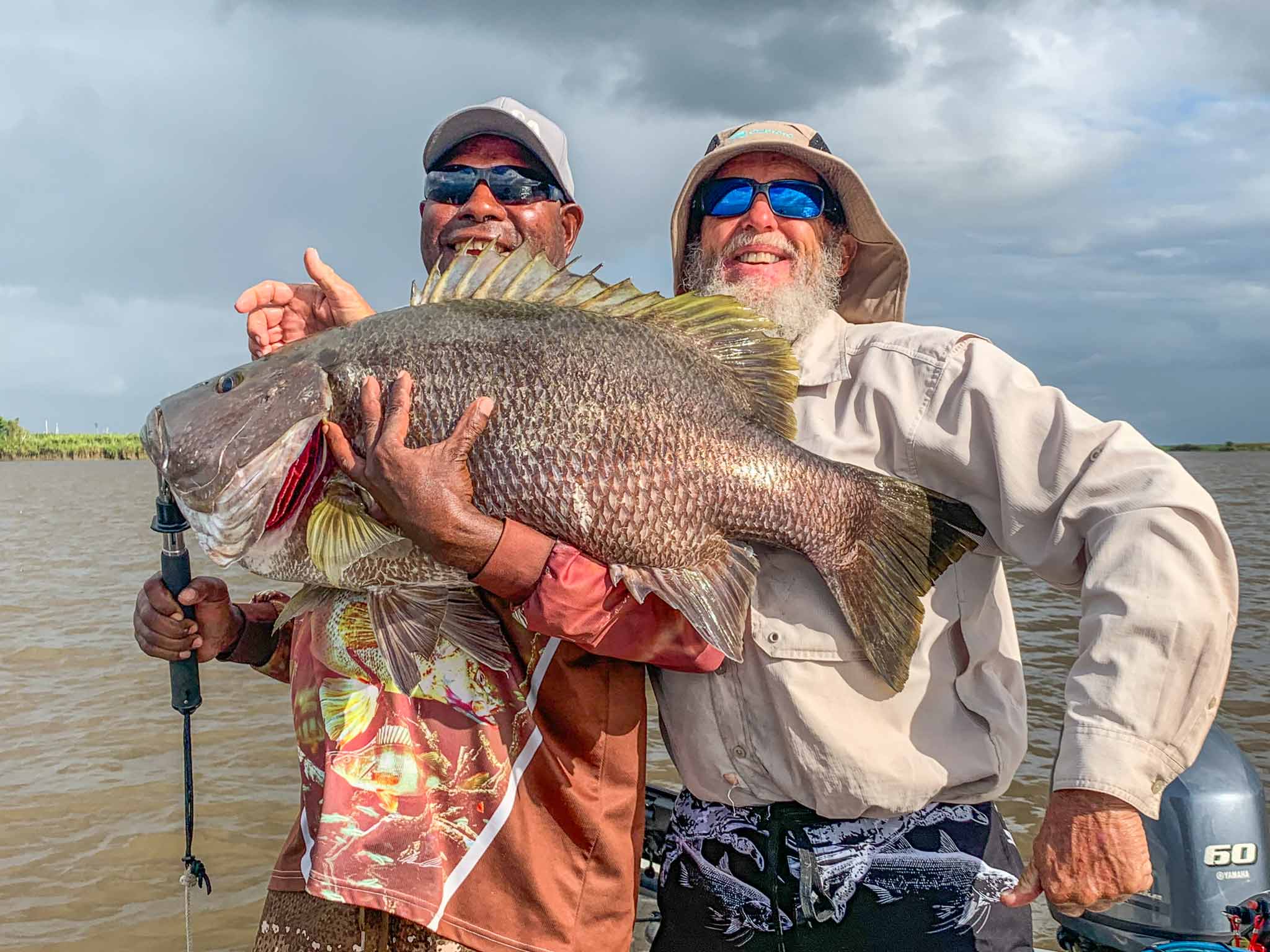
In recent months, the company has been able to run up to two multi-day trips per month. But excursions have been deeply discounted—30-40% of pre-COVID-19 costs—because local and expat communities are unable or unwilling to pay more. Longer, more lucrative trips to coveted game fish spots near remote river systems by the Indonesian border are on hold while maritime borders are closed.
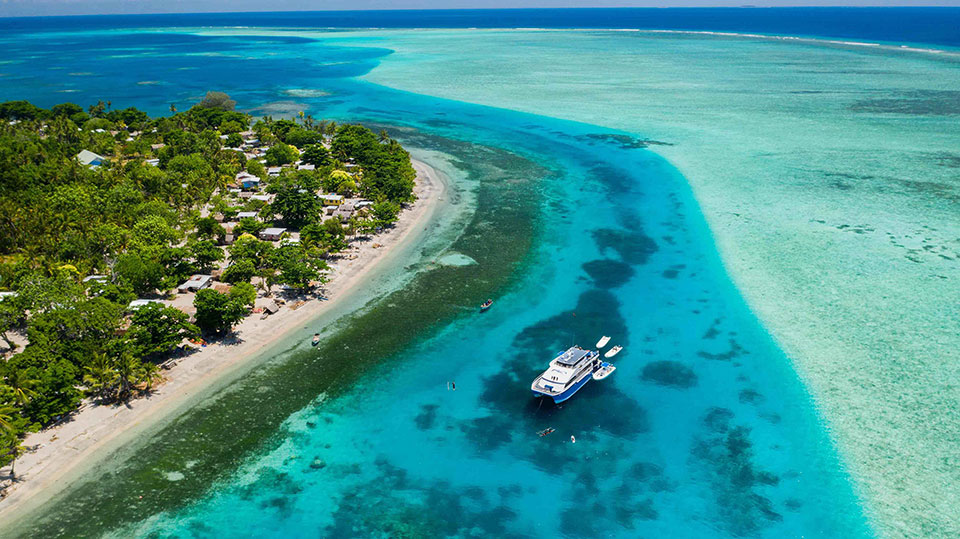
The Foundation’s support for salaries provides funds to maintain basic operations, but running a high-quality fleet is expensive, and experienced captains are typically expats from nearby countries who draw competitive pay. SportFishing PNG is using grant funds to train a resident, a former deckhand, as a captain through the country’s National Maritime Service Authority. It’s a local investment, and a step forward for the recovery ahead.
References
Government of Papua New Guinea. (2009). Papua New Guinea Vision 2050. PNG Vision 2050. Retrieved January 20, 2022, from Vision 2050: https://actnowpng.org/sites/default/files/png%20version%202050.pdf
Nielson, J., & Lyons, K. (2021, December 12). Experts warn Papua New Guinea is potential breeding ground for new Covid variants. The Guardian. Retrieved January 21, 2022, from https://www.theguardian.com/world/2021/dec/13/experts-warn-papua-new-guinea-is-potential-breeding-ground-for-new-covid-variants
PNG Dept. of National Planning & Monitoring. (2021, July 19). Medium Term Development Plan III (2018-2022) Volume 1 | Papua New Guinea Environment Data Portal. PNG Data Portal. Retrieved January 21, 2022, from https://png-data.sprep.org/dataset/medium-term-development-plan-iii-2018-2022-volume-1
Blog Post writing and research services provided by Finer Point Writing LLC.
All Photos courtesy of SportFishing PNG.
All Photos courtesy of The Ambleve Bedrock Foundation and Morocco Unexplored.